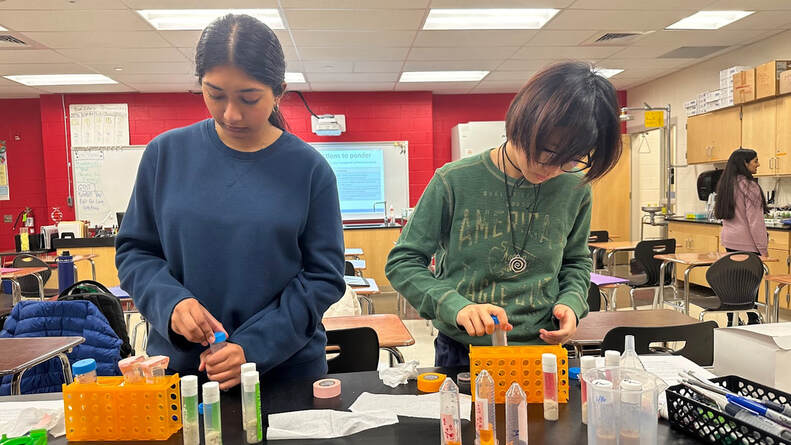|
Hello readers! We have some catching up to do since the last post. Last week, I presented my findings on how Black Cohosh (a type of herbal medicine) and disruptions in circadian rhythm impact fly fertility. Contrary to my hypothesis, I found that black cohosh and disrupted circadian rhythms had a lowering effect on the fertility of female flies. To produce my findings, I conducted a female fertility assay. The assay conditioned me to be observant, as counting embryos required attention to detail. When setting up the assay I learned a lot, like the fact that grape juice acts as a pheromone for flies. I now understand the purpose of grape plates. But I also noticed that to reach a definitive conclusion, I needed to repeat my trials to make sure that the results I got were not due to chance. As for the presentation…let's just say I am happy it was done. I enjoyed listening to my peers. (I need to remember the tips I got for the final symposium!).
So how do we make the parent flies anxious you ask? We will put the flies in the same tube with dead flies of their own species to induce a danger alert/alertness within the flies. If we find that conspecies death perception induces anxiety within the flies, it can show that Drosophila flies are more complex than what we previously thought. If we find that the progeny experienced negative effects without experiencing the anxiety-inducing situations themselves, this would open up a whole new realm of inheritance for the science world. It would certainly make parents more aware of what they do/experience in their lives before having children. Although the results in flies may not be directly applicable to human models, finding some kind of data would nonetheless contribute to the knowledge already known about inheritance from a non-genetic perspective. I cannot wait to see what kind of data I will get from this experiment. Thanks for reading! Until next time :)
0 Comments
Your comment will be posted after it is approved.
Leave a Reply. |
Archives
April 2024
Categories
All
|


 RSS Feed
RSS Feed